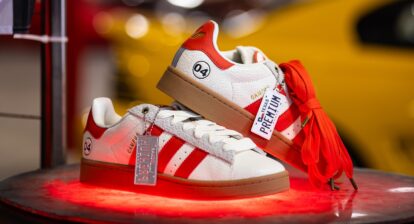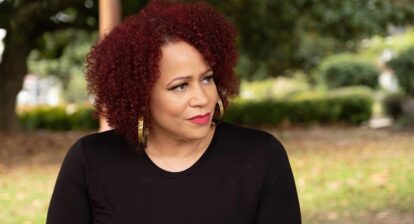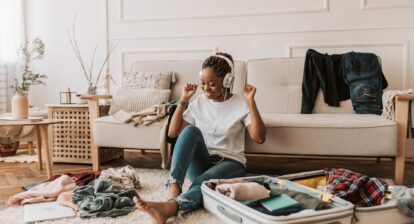
Phaith Montoya didn’t have to say it—but she did.
@phaithmontoya Replying to @Rihanna ♬ Hey Ya! – Outkast
On Sunday, the beauty, style and lifestyle TikToker took to her platform to call out something we’ve all noticed: the growing erasure of monoracial, non-racially ambiguous Black women in the beauty industry. And while some people in her comments didn’t quite get it, those of us who understand how this industry moves know exactly why her words were necessary.
Montoya, a multiracial, light-skinned woman, made it clear that she recognizes her privilege in these spaces. Unlike many of the Black women who helped build up the beauty industry but continue to be sidelined, she has access to certain opportunities—opportunities often denied to darker-skinned Black women with 4C hair and distinctly African features. Instead of ignoring that reality, she’s using her platform to speak up for the women who are constantly overlooked in brand deals, campaign placements and influencer trips.
Because let’s be real: beauty brands love Black culture, but they don’t always love Black women. Sure, they’ll drop a deep shade range or use a Black model during Black History Month, but when it comes to long-term investments—signing monoracial Black women as brand ambassadors, making sure they’re invited to high-profile activations, or giving them major sponsorship deals—their presence is scarce.
This isn’t an accident. It’s part of a larger issue where beauty brands only embrace diversity when it fits neatly within Eurocentric beauty ideals. Lighter skin, looser curls, racially ambiguous features—these are the aesthetics that get prioritized. Meanwhile, the Black women who don’t fit that mold are left fighting for a seat at the table in an industry they’ve built, sustained and revolutionized.
And to make matters worse, the timing of Montoya’s message couldn’t be more relevant. As brands quietly phase out their DEI initiatives, it’s becoming painfully clear that many of them saw diversity as nothing more than a trend. When it was profitable to appear inclusive, they did the bare minimum. Now? The same brands that once pushed for “representation” are conveniently shifting away from those commitments, proving that their version of inclusivity was never built to last.
But here’s the thing: Black women are not going to beg to be seen. Montoya’s message isn’t just a critique—it’s a call to action. If beauty brands want to claim Black culture, they need to show up for all Black women, not just the ones who fit a certain aesthetic. That means long-term investments, real opportunities and actual equity. Anything less is just another form of erasure.



